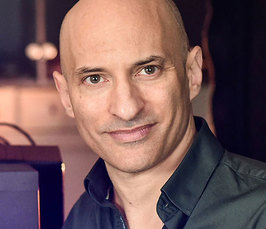Observation of stationary spontaneous Hawking radiation and the time evolution of an analogue black hole
Institutskolloquium
- Date: Jan 21, 2022
- Time: 10:30 AM - 12:00 PM (Local Time Germany)
- Speaker: Prof. Jeff Steinhauer
- Prof. Jeff Steinhauer, raised in Los Angeles, earned his doctorate from UCLA and completed two post-doctoral fellowships, one under Prof. Nir Davidson at the Weizmann Institute of Science, and the other in the lab of Nobel Prize laureate Wolfgang Ketterle at MIT. He joined the physics faculty at the Technion in 2003, and in 2009 began researching acoustic black holes in his lab. Source: haaretz.com
- Location: Zoom Meeting Room 1
- Room: Zoom Meeting
- Host: Dmitry Moseev
- Contact: dmitry.moseev@ipp.mpg.de

We confirm the stationary character of the spontaneous Hawking radiation in an analogue black hole. Furthermore, we follow the time evolution of the Hawking radiation, and compare and contrast it with the predictions for real black holes. We observe the ramp up of the Hawking radiation, similar to a real black hole. The end of the spontaneous Hawking radiation is marked by the formation of an inner horizon. The Maryland group predicted that particles emanating from the inner horizon can cause stimulated Hawking radiation. We find that these stimulated Hawking pairs are directly observable.